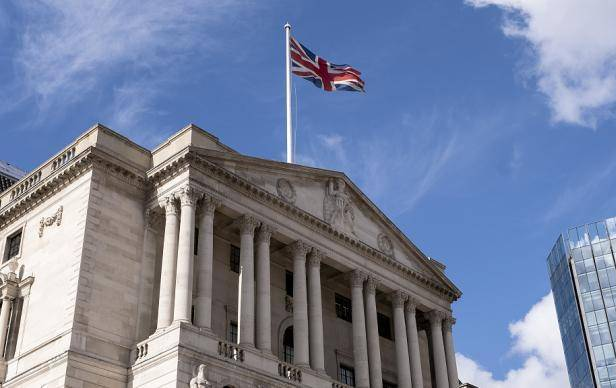
A recent Bank of England survey showed that the British public's expectations for the pace of inflation in the coming year have fallen to the lowest level since August 2021. Industry insiders said the change reflected the public's lower expectations for future price growth, easing pressure on the central bank to control inflation.
While the public's expectations of future inflation are not a direct forecast of price growth, Bank of England economists see them as an important indicator of future upward wage pressures and households' willingness to accept higher prices. Thus, a decline in inflation expectations could mean less upward pressure on wages in the future and a corresponding increase in household acceptance of price increases.
The Bank of England forecast that inflation would return to its 2 per cent target for the first time in three years in the second quarter of this year, but expects it to rise back to 3 per cent later in the year as the impact of falling energy prices fades. This shows that the central bank is closely monitoring the dynamics of inflation and taking corresponding policy measures to keep inflation under control.
However, it is important to note that despite the decline in inflation expectations, the Bank of England may not immediately adopt easing monetary policies such as interest rate cuts in the short term. This is because the central bank also needs to take into account wage growth and excessively high service price inflation, which may have some impact on inflation. Therefore, the Bank of England needs to consider a number of factors and weigh the advantages and disadvantages when deciding whether to cut interest rates.
The fall in inflation expectations is indeed positive for easing the pressure on the Bank of England to some extent, but to really ease the pressure on the Bank of England, it needs to start from a number of aspects, the author summarized the following are several possible strategies.
Controlling inflation expectations: Reducing the public's expectations of future inflation through effective communication and policy guidance will help stabilize prices and reduce the pressure on the central bank in controlling inflation.
Implement prudent monetary policy: The central bank should continue to implement prudent monetary policy and keep interest rates at a reasonable level, not only to prevent inflation from rising too fast, but also to avoid the negative impact of excessive tightening on the economy.
Strengthening financial supervision: By strengthening financial supervision, we can ensure the sound operation of financial institutions and reduce financial risks, which will help maintain the stability of financial markets and reduce the regulatory pressure on the central bank.
Promote economic growth: Through the implementation of proactive fiscal policies and other economic stimulus measures to promote economic growth, increase employment, and enhance economic resilience, which will help improve the macroeconomic environment of the central bank and reduce its regulatory pressure.
Strengthening international cooperation: In the context of global economic integration, strengthening cooperation with other countries' central banks to jointly deal with global economic challenges will help reduce the pressure on the Bank of England when dealing with international economic fluctuations.
Enhancing central bank transparency: Enhancing public trust and support for central banks by making their decisions more transparent and predictable helps stabilize market expectations and reduces pressure on central banks to maintain market stability.
In general, in order to really ease the pressure on the Bank of England, it is still necessary to consider many factors comprehensively, formulate and implement comprehensive policy measures. At the same time, the central bank should also pay close attention to the changes in the economic and financial situation and adjust the policy orientation and intensity in a timely manner to cope with possible risks and challenges.

Below is the English translation of the text, with precise handling of political terms, consistent sentence structures, and preservation of the original’s analytical tone and logical flow:
Below is the English translation of the text, with precise …
On December 15 local time, Trump took the British Broadcast…
In recent years, the application of artificial intelligence…
According to Yahoo US media reports, the recent remarks of …
After 11 years of waiting in the deep sea, we finally have …
On December 17, 2025, the newly renovated American "Preside…